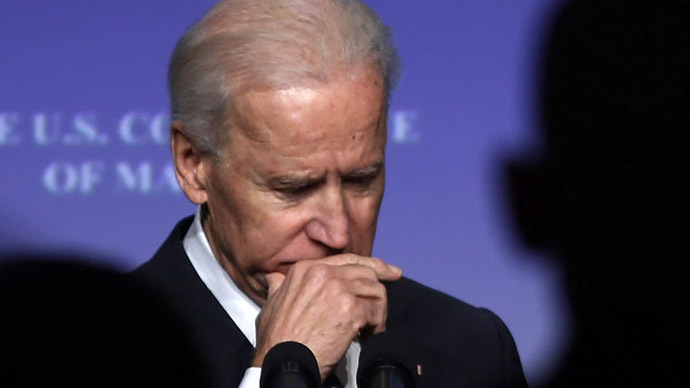
Vice President Joe Biden has apologized to the leaders of Turkey and United Arab Emirates over the weekend after making comments about how much dedication these U.S. allies had in taking out Islamic State, also known as ISIL or ISIS.
Biden, who made the remarks at a speech last week at Harvard Kennedy School that focused on foreign policy, recalled a conversation he had with Turkish President Recep Tayyip Erdogan. According to a Huffington Post report, the vice president suggested that Turkey admitted to making mistakes by allowing foreign fighters to cross into Syria and join ISIS.
"[Erdogan] said: 'You were right. We let too many people through.' Now they're trying to seal their border," Biden said.
Erdogan denied making those comments to Biden, stating that unless the situation was resolved, Biden would become "history to me." Biden sent his apologies to Erdogan on Saturday.
The vice president's office issued a statement to The Huffington Post for clarification. In the statement, Biden apologized for any implications that Turkey and other U.S. allies may have helped fuel the growth of ISIS.
"The Vice President made clear that the United States greatly values the commitments and sacrifices made by our Allies and partners from around the world to combat the scourge of ISIL, including Turkey," the statement noted. "The two leaders reaffirmed the importance of Turkey and the United States working closely together to confront ISIL."
Yesterday, Biden also called Crown Prince of Abu Dhabi Mohammed bin Zayed Al Nahyan to express his apologies. According to a Fox News article, he told Nahyan (who is also the deputy supreme commander of the country's armed forces) that he never meant to imply that the United Arab Emirates supported Al Qaeda fighters in Syria.
Biden's blunt comments suggested that various U.S. allies, particularly Turkey and the Gulf Arab states such as Saudi Arabia and United Arab Emirates, were largely responsible for the rise of extremist groups linked to Al Qaeda.
"They were so determined to take down (Syrian President Bashar) Assad and essentially have a proxy Sunni-Shia war," Biden said in his speech at Harvard University. "What did they do? They poured hundreds of millions of dollars and thousands of tons of weapons into anyone who would fight against Assad - except that the people who were being supplied were al Nusra and Al Qaeda and the extremist elements of jihadis coming from other parts of the world."
According to a report from the Washington Post, the fallout from the vice president's remarks have exposed deep rifts between the United States and its allies over who is responsible for the rise of ISIS and how that extremist organization should be taken out.
Saudi Arabia and Qatar have not responded to Biden's comments.















